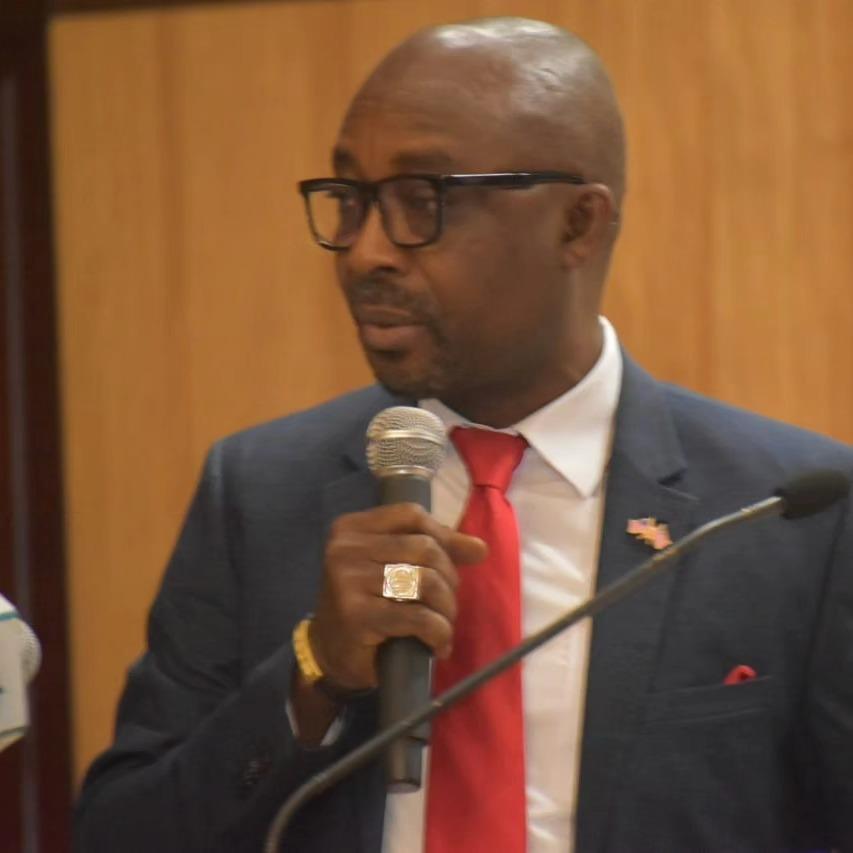But Some Other Positive Developments To Enhance Accountability In Liberia’s Legislature
The institution recommend that the legislature set up a functional website, and ensure voting records of members of the legislature is made public and available to assess the performance of its members.
PHOTO: Eddie Jarwolo, Naymote Executive Director
Monrovia, Liberia— An inclusive, accountable, accessible, and responsive legislature is a cornerstone of constitutional democracy. In Liberia, as in many democracies, the legislature enacts laws, represents citizens, and oversees executive policy implementation. Effective governance depends on the quality and impact of legislative decisions, says Naymote report released on Tuesday, June 18, 2024.
However, recent years have seen a significant gap in holding the legislature accountable outside of election periods. Citizens often have limited opportunities to demand accountability from their elected representatives, primarily due to a lack of information and transparency regarding legislative functions and activities.
Naymote Partners for Democratic Development is pleased to release an in-depth report based on its monitoring of the Liberian legislature, including both the House of Representatives and the Senate, during the first quarter of the first session from January 15, 2024, to April 30, 2024. This report also includes data from extraordinary sittings held between April 2 and April 30, 2024.
This initiative aims to strengthen political accountability and build public trust in elected officials. Findings were gathered through direct observations of legislative sessions, analysis of lawmakers’ positions on issues and policies, and examination of public records and official documents.
Key Findings:
- Lawmaking and Legislative Participation
The legislature held 78 sittings—51 in the House of Representatives and 27 in the Senate—with 56 being regular sittings, and 13 secret sittings. Total of 33 bills were monitored by the institution. The House considered 22 bills, passing 4 while 18 remain in committee room. The Senate introduced 11 bills, passing 3 with 8 still in committee room. In total, the Legislature passed six significant bills and one resolution, addressing key areas of national interest such as the economy, human rights, tourism, and trade. The House of Representatives passed four bills and one resolution, while the Senate passed three bills. Notable legislation includes acts authorizing government spending, establishing criminal and corruption courts, implementing Value Added Taxes (VAT) replacing Goods and Services Tax (GST), approving the national budget, and creating national tourism and railway authorities. NOTE: These bills from the Executive/Presidency were given most priority than those from members of the National Legislature.
- Committee Work
Lawmakers actively participated in standing and ad hoc committees, contributing to regular committee reports submitted to plenary with recommendations. They played a critical role in enhancing government accountability by inviting and questioning government officials and ensuring transparency and effectiveness in government operations.
- Voting Participation
Voting records indicate that some lawmakers consistently participated in voting on bills and resolutions, demonstrating their engagement. However, others frequently abstained or were absent, reducing their impact on legislative decisions.
- Policy Advocacy and Oversight
During the period under review, lawmakers in both houses were engaged in policy advocacy and oversight functions, ensuring alignment with public interests especially during the budget debates. There were increased public hearings, confirmation of public officials and improved communication with the executive branch.
- Attendance and Participation
Most lawmakers regularly attended plenary sessions and committee meetings, though some were frequently late or absent, negatively impacting legislative productivity. Despite absenteeism being a concern, lawmakers generally communicated their reasons for absences to the leadership of the House and Senate, who serve as the presiding officers.
- Oversight
The Legislature’s oversight activities improved, marked by increased scrutiny of government actions and expenditures. This period saw a rise in public hearings and enhanced communication with the executive branch, although challenges like limited access to voting records, the absence of a dedicated legislative website persist and limited legislative information available to the public.
- Representation
The Legislature remains predominantly male, with men holding 90 out of 101 seats (89.1%) and women occupying 11 seats (10.9%). Despite this gender imbalance, all legislators actively represented their constituencies, advocating for budget support for local projects and addressing public concerns.
- Constituency Engagement
Many lawmakers held town hall meetings and visited their constituencies, advocating for local issues and ensuring their constituents’ voices were heard. Conversely, a few lawmakers neglected constituency engagement, often citing limited time and extraordinary sessions called by the President as reasons for their lack of presence in their constituencies.
During the review period, Naymote observed that the leadership of both houses fostered a collaborative environment, significantly enhancing oversight compared to the previous legislature. However, challenges persist, including limited access to lawmakers’ voting records, the absence of a dedicated legislative website, the lack of a visible performance budget from the Executive, and lawmakers’ habitual tardiness, which hinder transparency and accountability.
The institution recommend that the legislature set up a functional website, and ensure voting records of members of the legislature is made public and available to assess the performance of its members. The legislature should submit itself for a full-scale financial and system audit as required of all other public institutions. Additionally, the legislature makes a deliberate effort to support constitutional reforms in support of affirmative action that increases the proportion of women in both houses, and the legislature, as part of its oversight responsibilities, ensures ministries, agencies, and commissions submit periodic reports that are vetted and made available to the public.
About Naymote Partners for Democratic Development
Founded in 2001 by student leaders and activists, Naymote Partners for Democratic Development is a prominent civil society organization dedicated to promoting accountable democratic governance, political transparency, and robust civic engagement in Liberia and across the continent. Naymote has played a pivotal role in enhancing Liberia’s democratic institutions and empowering citizens to participate actively in governance.

